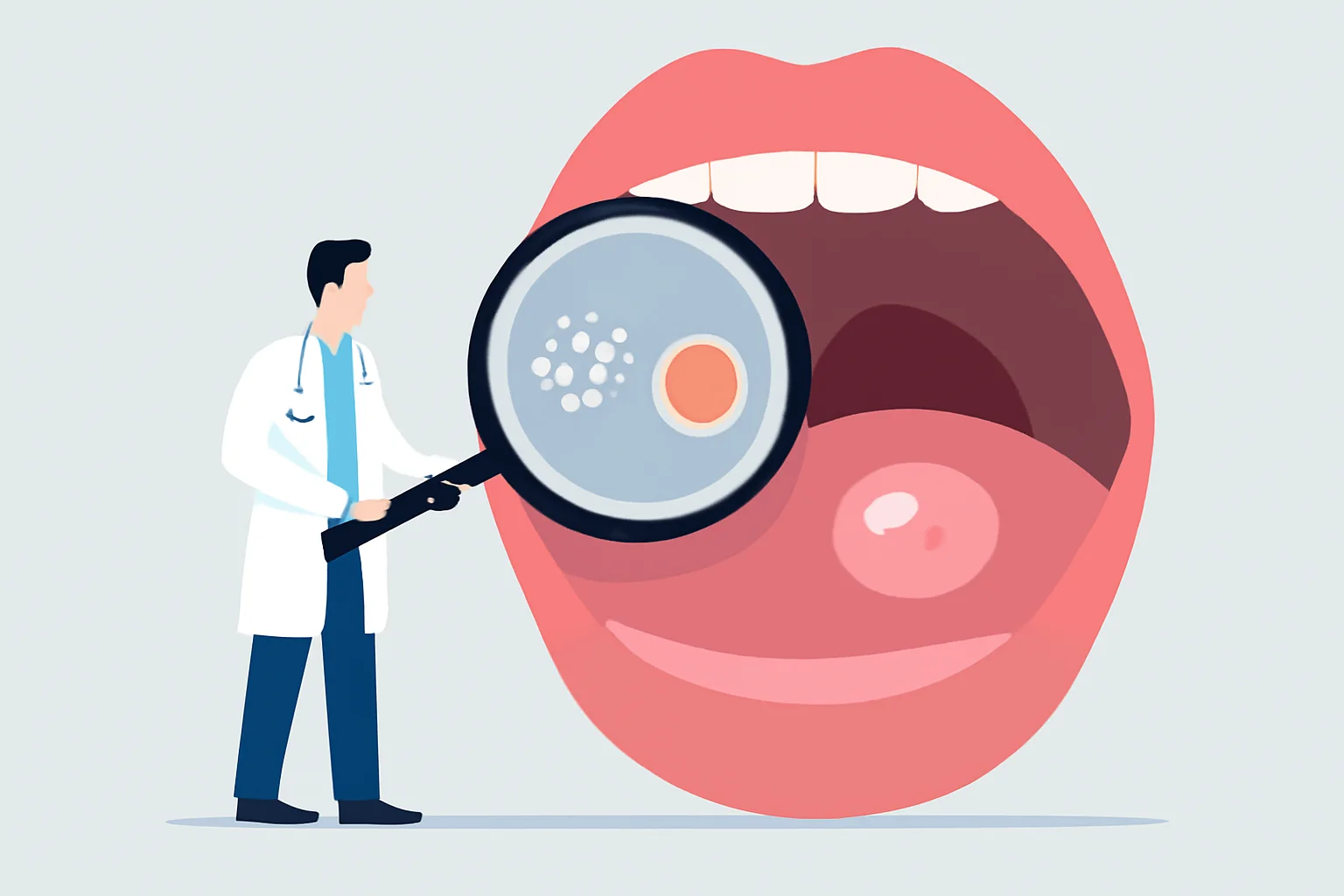
Herpes or aphthae: differences, symptoms, and treatment options
Aoral problems, such as herpes and canker sores, are common occurrences that complicate the lives of many people. These uncomfortable conditions not only cause pain and discomfort but often interfere with daily activities such as eating and speaking. Herpes is viral in origin, while canker sores are often inflammatory, and although both occur in the oral cavity, they have completely different causes and symptoms.
Herpes, which many recognize as “herpes simplex,” typically appears on the lips but can also manifest in the inner areas of the mouth in many cases. The herpes outbreak usually begins with itching and a burning sensation, followed by the formation of painful blisters. In contrast, canker sores are painful ulcers that appear on the oral mucosa, causing significant discomfort, but are not of viral origin.
Although the two conditions are often confused, their treatment and prevention are significantly different. People frequently seek information on how to distinguish herpes from canker sores and how to effectively manage these problems. Understanding the differences and similarities is crucial for accurate diagnosis and appropriate treatment.
Herpes: Symptoms and Causes
Herpes is an infection caused by the herpes simplex virus (HSV). There are two main types: type I, which most commonly causes lesions on the lips and around the face, and type II, which typically appears in the genital area. The virus is highly contagious and spreads through close contact, such as kissing or using infected personal items.
Symptoms of herpes usually appear 2-12 days after infection. Initial signs include itching, burning, or pain in the affected area. This is followed by the development of blisters that later burst, leaving painful sores. Recurrence of herpes is common and typically occurs due to stress, illness, or a weakened immune system.
Treatment for herpes is often symptomatic, focusing on pain relief and promoting healing. Antiviral medications like acyclovir can help shorten the duration of the outbreak and alleviate symptoms. Doctors often recommend the use of topical pain relievers and moisturizing creams as well.
It is important to note that herpes cannot be completely cured, but there are many options available for managing symptoms and preventing recurrences. Regular health check-ups and adherence to hygiene practices can help prevent the spread of the virus.
Canker Sores: Symptoms and Treatment
Canker sores, also known as aphthous ulcers, are inflammatory lesions of the oral mucosa that manifest as painful sores. These ulcers are usually small, round or oval-shaped, and are white or yellow in color, surrounded by a red inflamed border. The most common locations for canker sores to appear are the inner sides of the lips, gums, tongue, and the roof of the mouth.
The causes of canker sores can vary. Many people find that stress, hormonal changes, or certain foods, such as citrus fruits, irritate the oral mucosa and lead to canker sores. Additionally, vitamin deficiencies, particularly in B vitamins, iron, and zinc, can contribute to the appearance of ulcers. Dentures, braces, or any trauma to the mouth can also trigger the formation of canker sores.
Treatment options include the use of pain relievers, anti-inflammatory medications, or special mouth rinse solutions. Canker sores typically heal on their own within a few days, but treatments aimed at reducing symptoms can help alleviate pain. It is important to avoid irritating painful areas, so consuming soft, easily digestible foods is recommended.
Although canker sores are not contagious and do not spread to others, attention to oral hygiene and nutrition is advisable for their treatment and prevention. If someone frequently suffers from canker sores, it is worth consulting a doctor to rule out potential underlying conditions.
Similarities and Differences
Herpes and canker sores, while both occurring in the oral cavity, have fundamental differences. The most noticeable distinction is the pathogen: while herpes is of viral origin, canker sores are bacterial or inflammatory. Herpes appears in the form of blisters that later burst, while canker sores are painful ulcers that do not blister.
The symptoms also differ: herpes begins with itching and a burning sensation, while canker sores cause pain even before they appear. Herpes typically occurs intermittently, recurring over time, whereas canker sores are often single events, though they can be a recurring problem for some individuals.
Treatment options also differ. Antiviral medications are available for herpes, while treatment for canker sores generally relies on pain relievers and anti-inflammatory drugs. Additionally, herpes spreads more easily, while canker sores are not contagious.
It is important to distinguish between the two conditions, as incorrect diagnosis and treatment can exacerbate the problem. If someone is unsure whether they are dealing with herpes or canker sores, it is advisable to consult a doctor for an accurate diagnosis and appropriate treatment.
**Warning:** This article does not constitute medical advice, and individuals should always seek their doctor’s guidance for health issues.

